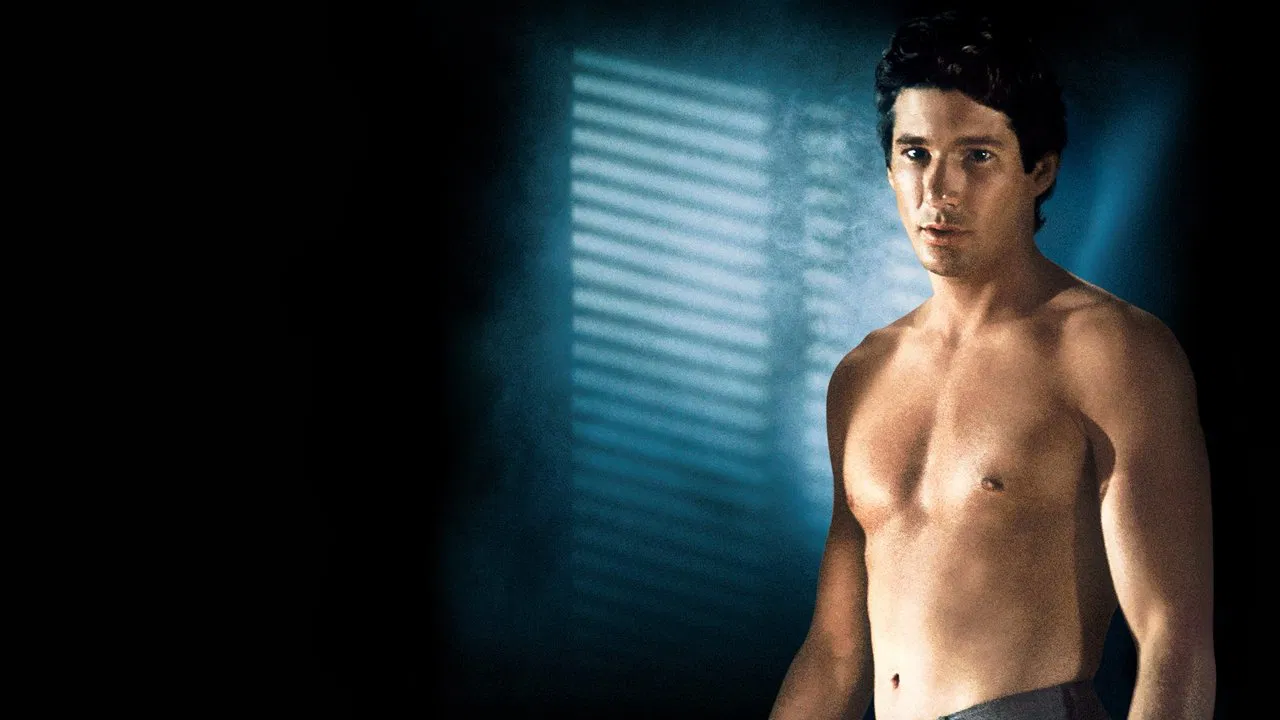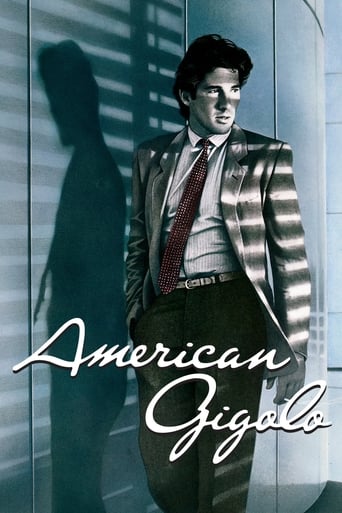jovana-13676
The film looks like a fashion editorial shot by Francesco Scavullo or Guy Bourdin. That's great. But since this is a movie, one expects the leading man to be more than a two dimensional mannequin, which only happens for a second in the balcony scene - you will know when you see it. The character is flat 99% of his screen time which makes his romance with a mature and passionate woman completely unbelievable. You wonder what she sees in him and if he's capable of seeing anything in her. However, the film captures the pre-AIDS era, its aesthetics and lifestyle that we sorely miss.
callanvass
I happen to be a fan of Richard Gere. The man is a fantastic actor, so of course I was going to check out this film, despite its dubious reputation. Was it a mistake? You betcha! The sleazy undertones cannot be ignored here or the gay overtones. Not much offends me, but this film is thoroughly unlikable and slightly detestable, even. Director Paul Schrader did a good job of making everything grim that is for sure. Now; I fully grasp as to what they were going for here. Richard Gere's performance suits the character, but it is extremely tough to get behind him. I realize that was somewhat the point, but it doesn't change the fact that I couldn't stand him. The story could have been morbidly riveting, but instead it is just morbid. I am amazed that this film has a rating of 6.0. To each their own guys, but IMHO this film doesn't deserve it. Anyway; I don't remember much else about it, other than it was extremely unpleasant and hard to get through. Final Thoughts: Gere fans will probably wanna check this out, but I wouldn't really recommend it. There are many other films that he has done in the 80's that are much better. (An Officer and a Gentleman being one of them) If you do decide to watch it, maybe you'll get more out of it than I done. If so; all the more power to you4/10
James Hitchcock
With the decline of the moralistic Production Code, female prostitutes began to appear in films from the early sixties like "Irma la Douce" and "Breakfast at Tiffany's", although they generally fitted that old literary archetype of the "tart with a heart", and by the end of the decade we had, in "Midnight Cowboy", a mainstream film dealing with the subject of male prostitution. "American Gigolo", made in 1980, is another on the same controversial theme. Julian Kaye is a heterosexual male prostitute working in Los Angeles who makes his living having sex with wealthy women for money. It is evidently a job which pays well as he lives in an upmarket apartment, drives a Mercedes SL, wears clothes by Armani and has expensive tastes in hi-fi equipment. Julian, however, is a tart without a heart; he is a selfish and superficial man who lacks any affection for the women he sleeps with, seeing them only as a source of income, until he meets Michelle Stratton, the unhappily married wife of a rising politician. Michelle becomes a regular client and begins to develop deeper feelings for him. Julian learns that another of his clients, the wife of a wealthy financier, has been murdered. To make matters worse, the police regard him as a prime suspect and he is unable to provide an alibi. He realises that he is being framed to protect the real murderer and is forced to go on the run to discover who is responsible. The theme of a man wrongly accused of a crime is a familiar thriller trope; it frequently occurs, for example, in the works of Alfred Hitchcock. "American Gigolo", however, is quite different in style to any of Hitchcock's films. It is sometimes regarded as the second installment of Paul Schrader's "lonely man" trilogy, following "Taxi Driver" for which Schrader wrote the script but was directed by Martin Scorsese, and preceding "Light Sleeper" which, like "American Gigolo", was both written and directed by Schrader. I have never seen "Light Sleeper", but there are certainly parallels between "American Gigolo" and "Taxi Driver". Both have prostitution as a central theme and both have a main character who is a loner, despite the obvious differences between Richard Gere's affluent, dandyish Julian and Robert de Niro's seedy working-class loser Travis Bickle. Like Bickle, Julian is cold and emotionally detached, and both films similarly take a cold-eyed, detached view of their subject-matter. Julian may be the victim of undeserved suspicion, but Schrader never evokes sympathy for him in the way that Hitchcock probably would. (Hitchcock generally intended the audience to identify emotionally with the heroes of his "man unjustly accused" films like Cary Grant in "North by North-West" or Henry Fonda in "The Wrong Man"; "Frenzy" is perhaps an exception). Julian is too cold and self-obsessed to claim our sympathy; there is a sense that he has earned his living in an immoral way and paid the price, that he has played with fire and got burnt after coming up against people more vicious than he is. At the end of the film he is only saved by a false alibi- he has learned to fight fire with fire and lies with more lies, an ironic ending which, I suspect, would not have appealed to Hitchcock. The film is very much of its time, celebrating the contemporary styles of the late seventies and early eighties, represented by Julian's car, clothes and tastes in interior decoration. (This impression is strengthened by the use of the pop music of the era, such as Blondie's "Call Me", on the soundtrack). As the film progresses, however, the outward symbols of his sleazy success seem to drop away; previously immaculately dressed, he now appears unkempt and unshaven and is seen driving a cheap rented car. Gere was not the first choice for the role of Julian- that was, apparently, John Travolta- but he made the part his own. As in a number of his best films- other examples include "An Officer and A Gentleman", "No Mercy" and "Chicago"- Gere's performance is characterised by a certain self-confident swagger bordering on arrogance. (The same is to some extent true of "Pretty Woman", but there Edward's outward swagger hides inner uncertainties and self-doubt). Lauren Hutton is also good as Michelle who has to choose between her growing feelings for Julian on the one hand and her husband 's political career and her own reputation on the other."American Gigolo" is in form a thriller, but seen purely as such it is not altogether a success. There is insufficient tension, the emotional temperature is too cool and the ending is unclear. Where it does succeed is as a cool, stylish look at the underside of American society in the early eighties. 7/10

